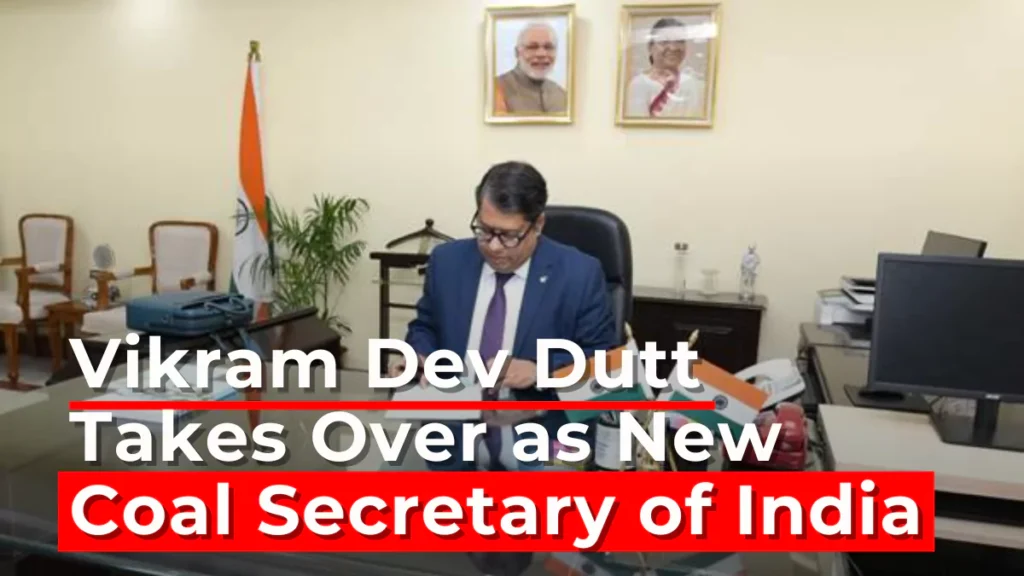
Vikram Dev Dutt, a 1993-batch IAS officer from the AGMUT cadre, has been appointed as the new Coal Secretary. He previously served as the Director General of the Directorate General of Civil Aviation (DGCA). Dutt takes over from VL Kantha Rao, who held the additional charge after Amrit Lal Meena was repatriated to Bihar as the Chief Secretary. With India’s power demand increasing, Dutt’s role is crucial in enhancing coal production to meet growing energy needs.
Background on Recent Administrative Changes
The former Coal Secretary, Amrit Lal Meena, was repatriated to his home cadre in Bihar at the request of the state government. This change led to VL Kantha Rao taking over the additional charge of the Ministry of Coal. Now, Vikram Dev Dutt has officially assumed the position, marking a shift in the ministry’s leadership.
Challenges Ahead for Vikram Dev Dutt
Vikram Dev Dutt’s appointment comes at a time when India’s coal production needs to grow significantly to support increasing power demand. The government aims to increase coal production to over 1 billion tonnes by 2032 and add 80 gigawatts of coal-fired power capacity. This plan is vital to ensure energy stability as the country adopts more renewable energy sources.
Key Information About the Appointment
| Details | Description |
| Name | Vikram Dev Dutt |
| Previous Position | Director General, Directorate General of Civil Aviation (DGCA) |
| Cadre | AGMUT (Arunachal Pradesh-Goa-Mizoram and Union Territory) |
| Predecessor | VL Kantha Rao (Additional Charge) |
| Former Coal Secretary | Amrit Lal Meena |
| Future Goals | Enhance coal production, ensure stable energy supply |
Vikram Dev Dutt Takes Over as New Coal Secretary of India- Summary
- Appointment: Vikram Dev Dutt is the new Coal Secretary of India.
- Background: A 1993-batch IAS officer from the AGMUT cadre, Dutt previously led DGCA.
- Predecessor: He succeeds VL Kantha Rao, who was handling the additional charge after Amrit Lal Meena’s transfer.
- Challenges: With India’s power demand rising, Dutt must focus on increasing coal production.
Future Goals: India plans to reach over 1 billion tonnes in coal production by 2032.
Also Read Latest Current Affairs 2024
Vikram Dev Dutt is a 1993-batch IAS officer from the AGMUT cadre. He has been appointed as the new Coal Secretary of India.
Before becoming the Coal Secretary, Vikram Dev Dutt served as the Director General of the Directorate General of Civil Aviation (DGCA).
He succeeded VL Kantha Rao, who was handling the additional charge after the former Coal Secretary, Amrit Lal Meena, was transferred to Bihar.
The main challenge for Vikram Dev Dutt is to increase coal production to meet India’s rising power demands and support the government’s goal of adding 80 gigawatts of coal-fired power by 2032.
Amrit Lal Meena was repatriated to his home cadre in Bihar upon the request of the Bihar state government, where he now serves as the Chief Secretary.
India plans to increase coal production to over 1 billion tonnes by 2032 and enhance coal-fired capacity by 80 gigawatts to ensure a stable energy supply.
Increasing coal production is essential to meet the growing power demand in the industrial and residential sectors, while balancing renewable energy integration into the grid.
